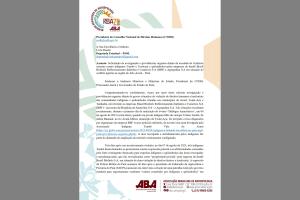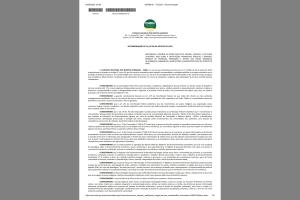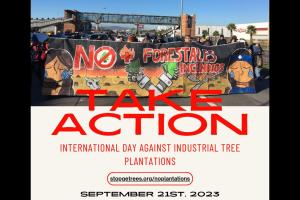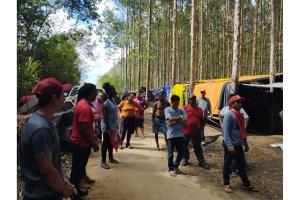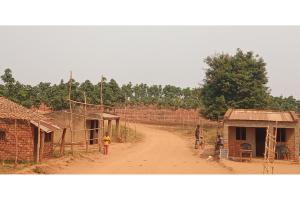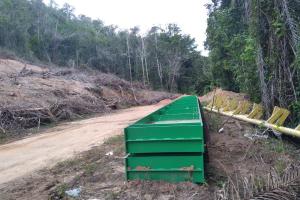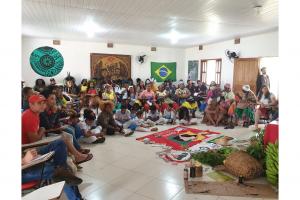Struggles Against Tree Monocultures
Corporate profit drives land grabs to install industrial tree monocultures. Where industrial plantations take root, communities' territories and lives are violently invaded, their forests destroyed and their water polluted. When communities resist, companies tend to respond with aggression. Despite this extreme violence, communities around the world are resisting, organizing and joining forces to defend their territories. Every September 21 the International Day of Struggle against Monoculture Tree Plantations is celebrated.
Articles
24 February 2024
Between August 4 and 7, 2023, there were violent attacks on the lives of four indigenous Tembé people as a consequence of the struggle to take back territories from the hands of the company Brasil BioFuels (BBF). In the face of this, the Brazilian Anthropological Association (ABA) sent a formal letter to the authorities requesting the immediate regularization of indigenous and quilombola territories, as well as an investigation into the mechanisms of criminalization of their leaders and the suspension of all incentives to companies involved in the violence.
Articles
24 February 2024
On August 8, 2023, the National Human Rights Council (CNDH) sent a recommendation to federal and state authorities regarding measures to protect, promote and defend indigenous peoples and quilombola, riverine, peasant and agro-extractivist populations in Pará state.
Bulletin articles
25 October 2023
Exchanges between activists put the voices of those who fight to defend their territories at the center of the conversation. In September, members of communities from Brazil and Mozambique united their struggles and connected their histories once again, helping to strengthen solidarity in the fight against industrial tree plantations.
Other information
25 October 2023
The network released an open letter in which it denounces the impacts of the plantations and the crimes committed by the companies. At the same time, they demand reparation and reaffirm resistance against tree monocultures.
Action alerts
21 September 2023
Sign the letter in support of Indigenous and local communities devastated by the social and ecological impacts of industrial tree plantations, and threatened by the planned future use of GMO tree plantations.
Publications
21 August 2023
Suzano is a Brazilian multinational company that produces cellulose and paper products from eucalyptus plantations. Read this booklet produced by the ‘Alert Against the Green Desert’ Network and find out important facts that are often hidden by this mega-company’s propaganda machine.
Action alerts
28 April 2023
Action alerts
18 April 2023
We urge you to express solidarity with MST (Movement of Landless Rural Workers) and send an urgent message to the state government in order to prevent that 200 families will be evicted from a land occupation in a eucalyptus plantation area of the transnational pulp and paper company Suzano.
Bulletin articles
30 March 2023
At the foot of Mount Mabu, Mozambique, the expansion of rubber tree monoculture plantations has restricted Manhaua communities’ access to their own territory. This process has occurred by means of systematic abuses, thus depicting the contrast between the different ways the population and foreign capital relate to the environment where they find themselves.
Other information
16 January 2023
The news portal Metrópoles travelled 5,700 km to denounce how the palm oil production chain affects quilombola communities and Indigenous Peoples in the state of Pará, Brazil—namely through expropriation of traditional communities, environmental impacts, and a labor history analogous to slavery.
Action alerts
12 January 2023
Demand that the Suzano company stops destroying quilombola territories in the south of Bahia, Brazil
Bulletin articles
11 October 2022
The network that brings together movements, organizations and communities in the fight against tree plantations met in the Far South of the State of Bahia. This September 21st, it once again denounced the impacts of this violent and unjust model, which is based on large-scale plantations mostly for pulp export.
